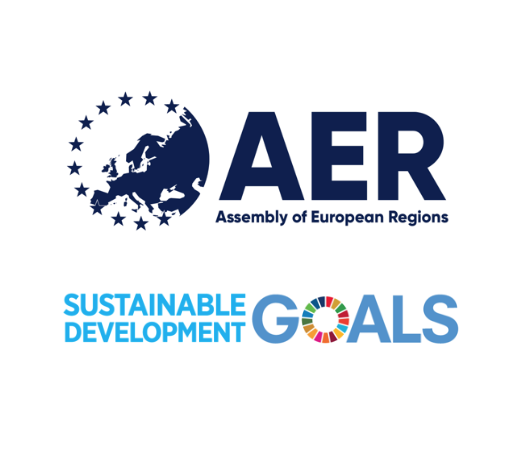 Share this!
Share this!The Committees’ Work Programmes for 2018-2019 demonstrates a strong commitment
Experience exchange and advocacy
In this context, the AER Working Group on Energy and Climate Change exchanged experiences during a workshop in September 2018 in Novi Sad, Vojvodina (RS).
Working Group Chair Eva Hallström also attended a meeting represented AER at the 1st OECD Roundtable on Cities and Regions for the SDGs, which took place at the OECD Headquarters in Paris. The roundtable brought together cities, regions, national governments, international
The 2030 Agenda
Since its inception in 2015, the UN Sustainable Development Agenda (Agenda 2030), calls on governments, businesses and citizens to collectively mobilize to end all forms of poverty, fight inequality and tackle climate change. The 17 Sustainable Development Goals are designed to promote prosperity while protecting the planet.
Using the SDGs as a policy framework
AER members are working with the Sustainable Development Goals in the regions. This is why they are interested in learning from peers how they use the SDGs so they can improve the efficiency of policies and avoid pitfalls. Indeed, regions and cities are key actors for addressing the most urgent societal challenges European economies are facing as well as for achieving the 2030 Agenda for Sustainable Development Goals. In Europe, regions and cities hold competencies in the provision of basic and social services, health, education, urban planning and resource, and waste management, among others. However, there is no one size fits all when it comes to the mainstreaming process. Each region needs to take into account their own realities and circumstances.
The need for an integrated approach
The OECD stresses the importance of an integrated approach in the implementation of the SDGs. Many SDGs are interconnected with each other; an integrated approach implies managing trade-offs and maximising synergies across targets.
For example progress in achieving SDG 1 No poverty, has direct and indirect positive impacts on health and wellbeing (SDG3), Quality education (SDG4), Gender equality (SDG5), Clean water and sanitation (SDG6), and potentially also leads to reduced inequalities (SDG10).
On the other hand, for instance, using coal to improve energy access and deliver on SDG 7 Affordable and clean energy, would accelerate climate change and acidify the oceans. This would undermine SDG 13 Climate action and SDG 14 Life below water. It would also exacerbate other problems such as damage to health from air pollution, which in turn would affect SDG 3 Good health and wellbeing
Different tools for different needs
Many stakeholders struggle with the use of the Sustainable Development Goals as a framework for regional policy-making. In this context, the European Commission published on January 30th a Reflection Paper on a Sustainable Europe by 2030: the paper reviews challenges and debates on how the Sustainable Development Goals can be best achieved and how the European States and regions can best contribute by 2030.
David Tremblay identified gaps for an integrated implementation and analysed different tools for addressing SDGs connections. Among them, the SDG Acceleration toolkit is an online compendium of methodologies and guidance for analysing interconnections among the SDGs, assessing how to contribute to help stakeholders at all levels understand synergies and trade-offs and identify and unlock barriers for strategising, prioritising and accelerating progress.
AER 2019 Spring Committee Plenaries
Multiple times per year, AER brings together regions, so that they may stand stronger together, and grow in a space of experience exchange.
The AER Working Group on energy and climate change is chaired by Eva Hallström, County Councilor from Värmland (SE). Delegates will meet on March 27th, on the occasion of the 2019 Spring Committee Plenaries in Örebro for a workshop on implementing the SDGs at
